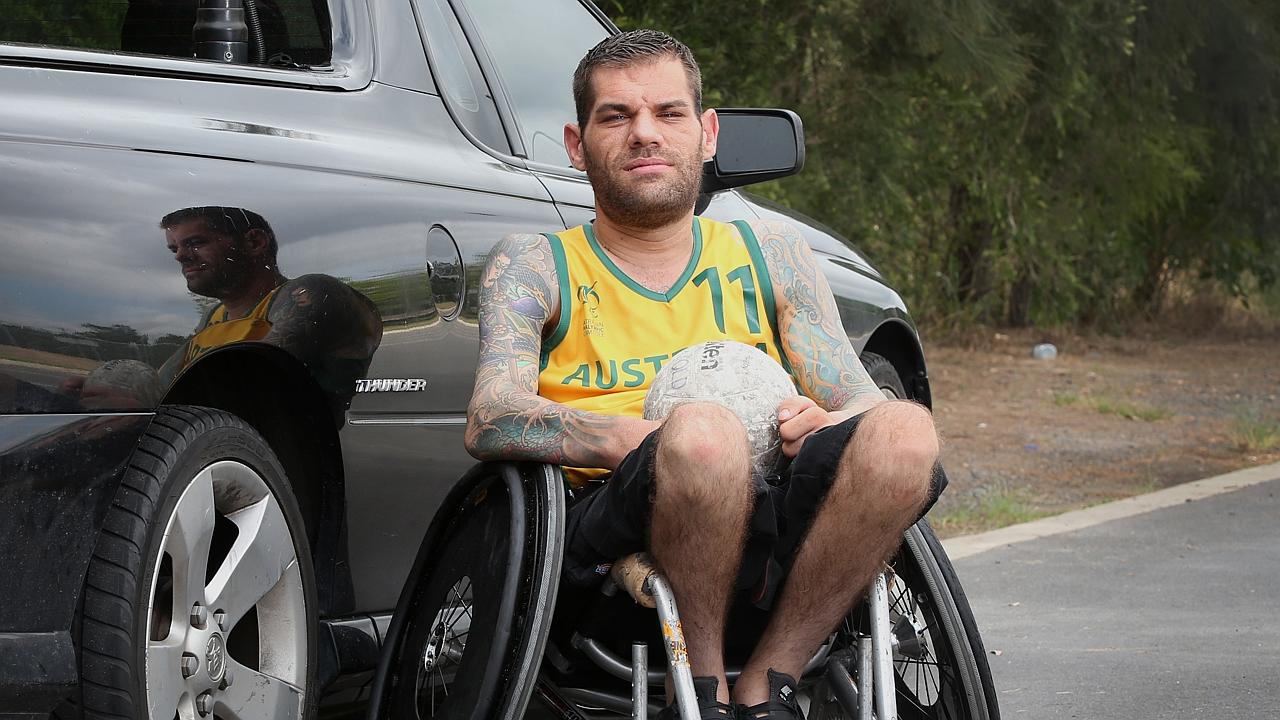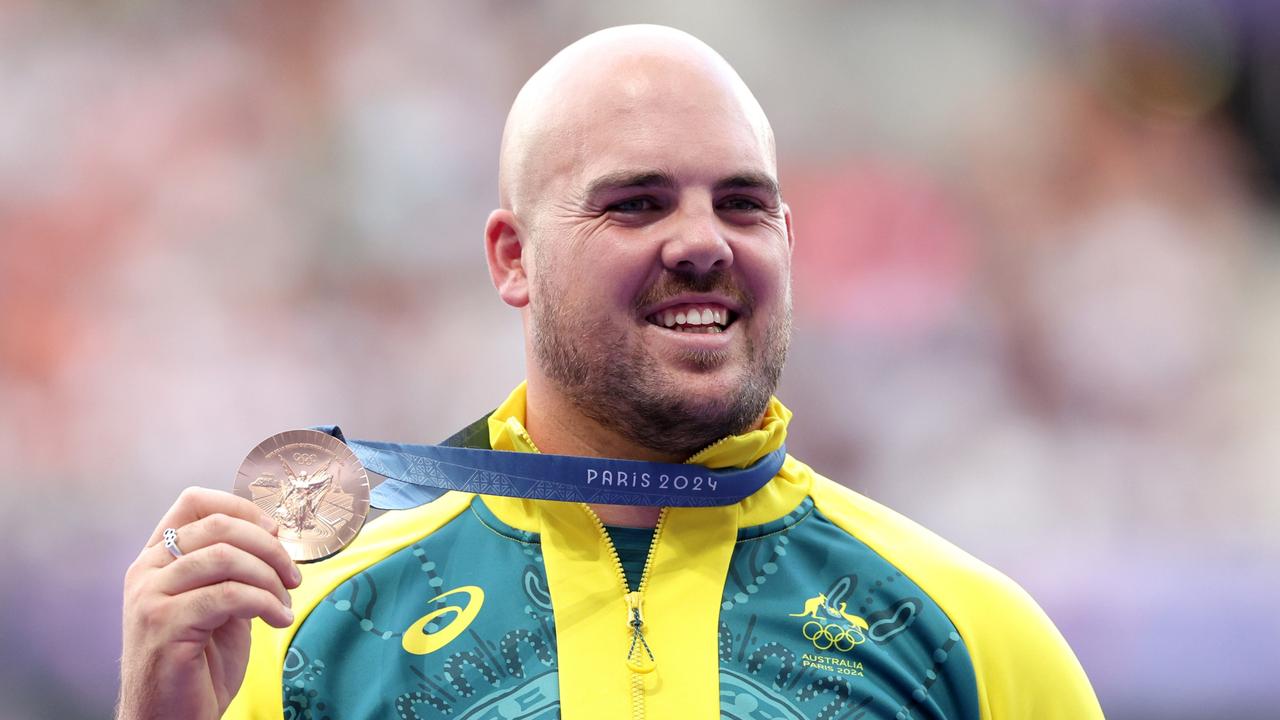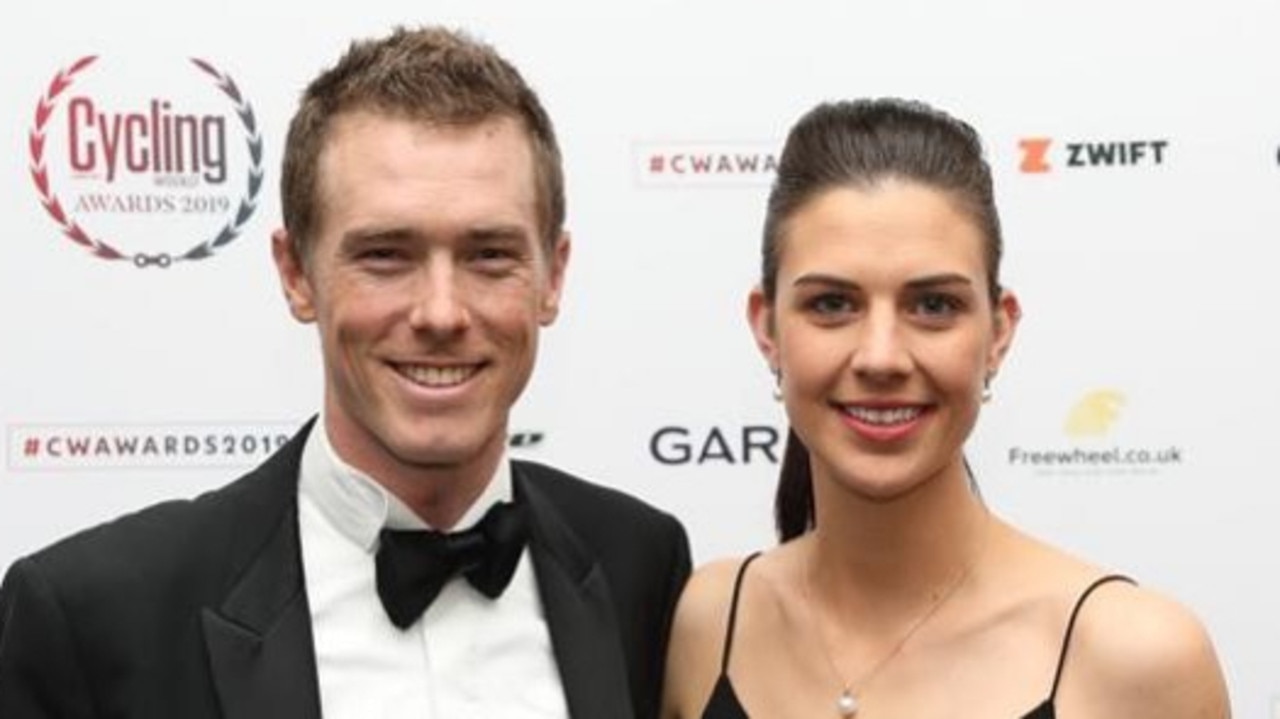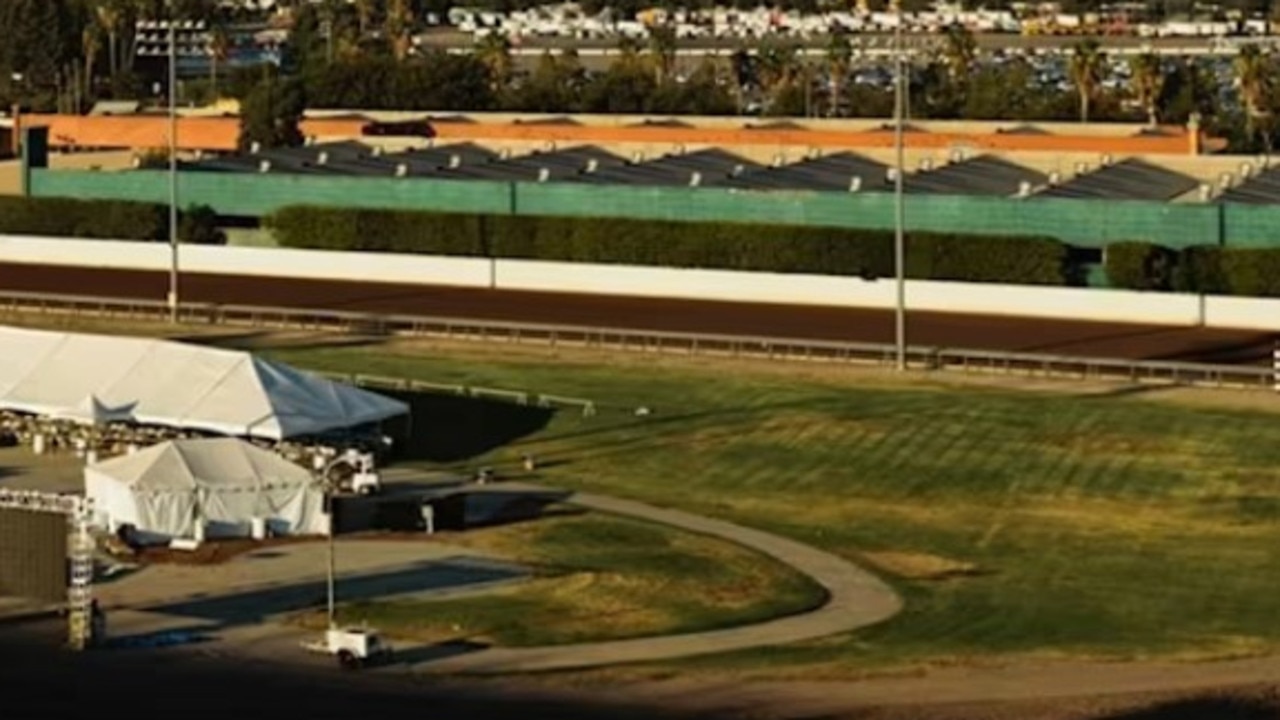Wheelchair rugby player Ryan Scott gears up for fourth Paralympics in Rio
RYAN Scott is powering up for his fourth Paralympics. At 33, the wheelchair rugby player hopes his side can repeat their golden effort in London four years ago in Rio.

BRISBANE’S Ryan Scott is powering up for his fourth Paralympics in the sport known as Murderball. At 33 the veteran wheelchair rugby player hopes his side can repeat their golden effort in London four years ago.
You have spent half your life playing wheelchair rugby and you are a veteran of three Paralympic Games. What has the game done for you?
It has made my whole life so much better. When I was 16 I broke my neck in a car accident. One of the most important things in my life as a young guy was playing team sports with my mates. For a long time after my accident I really felt that I had lost everything. I was in hospital and so many people were looking after me that I thought this would be my life now. But because of wheelchair rugby I’ve been able to travel the world playing a team sport, I have represented my county at three Paralympic Games, which is huge. It has also made me a much more independent person.
Even though you suffered badly because of a car accident, are you still a great car fan?
My daily drive is a Holden Thunder ute but I have a weekend cruiser, a ‘67 Chev Camaro which is my pride and joy. The Thunder has a special crane that’s operated by remote from inside the cabin to lift out my wheelchair. The controls of the cars are modified. The pedals are in a lever.
And you are a big fan of drag racing?
It’s kind of funny, because I’m a road safety advocate who broke his neck in a car accident. But I appreciate the sport in a safe controlled environment and I enjoy watching it. My brother raced drag cars but I don’t. I’m more a low and slow kind of driver. My dad was a mechanic so we grew up around cars all the time. He worked for a place that imported American cars and I’ve always loved them.
What brought you to Brisbane?
I moved here from Adelaide in 2009 after the Beijing Paralympics. I came up here for the warm weather and because Queensland had a good wheelchair rugby program.
Your game is known as Murderball. It must take a big physical toll?
We train every day and it takes quite a while to recover because we’re using the same muscles in the arms to drive and push. You don’t get much of a rest and the muscles get very fatigued. The wear and tear takes its toll. Our arms are working all day so we can get around. We are in a training camp in Melbourne this week and at the end of the month we are going to Rio for a test event ahead of the Paralympics. Some of the guys in the team work fulltime but I’m pretty much a fulltime rugby player. I was doing a lot of road safety appearances and public speaking work but with the Paralympics coming up I’ve had to stop and just focus on training.
You are the Sporting Wheelie of the year.
It’s my first time with the award, so it is a great honour. I’ve always loved sport. Before my accident I played just about every sport except rugby, because that’s not really big in Adelaide. My parents are English so I grew up playing soccer. I played basketball and then Aussie rules. The year I broke my neck, my football team, the Aldinga Sharks under-16s, were going through the season undefeated. I broke my neck halfway through the season.
What happened?
Me and my mates were going out for a friend’s 21st birthday in 1998. I was sitting in the back. We were driving in a VH Commodore and the guy at the wheel, an 18-year-old, was speeding on a wet road on the way to Victor Harbour. He lost control and the car rolled. As we went over, we went up an embankment and hit a tree. The roof came down and hit me on the head and broke my neck. The guy next to me in the back got a broken jaw, the driver got a cracked sternum and the other passengers had bruising. It all happened so fast, split second stuff.
How did you recover?
I spent five weeks in hospital and then six months in rehab. My rehab co-ordinator was a Paralympic gold medallist in wheelchair basketball. He was my co-ordinator and my gym instructor. He got me into rugby. I’ve been doing this for 17 years now.
Playing rugby in a wheelchair must have been totally different to anything you’d done. Did it take a long time to learn the new skills?
Most of the guys in our Australian team have come through an accident, too, so we’ve first had to learn how to deal with the disability before learning a new sport. It takes a lot of time and effort.
How long did it take you to become a good player?
It would have to be about four or five years. I went to my first national titles in 1999, about 12 months after my accident, but I was way off the pace. It was a real eye-opener but the team thought they could develop me. It was the year before the Sydney Paralympics. I was training with three of the Australian guys and one of them was the captain Steve Porter. I watched them play in front of 10,000 people. They lost the final but it motivated me to play like them. After my accident I had gone back to high school to finish the second half of Year 11 even though it took me two years to do it part time. After watching the Paralympics I realised the opportunity that wheelchair rugby was giving me and I didn’t want to miss out. I quit school straight away to become a fulltime rugby player. My first world championships were in Sweden in 2002 and I’ve been to the Paralympics in Athens, Beijing and London. We won silver in Beijing and gold in London.
How long does a game of wheelchair rugby last?
It’s played over four eight-minute quarters but a stop-clock is used and with stoppages a game can stretch out to an hour and a half. The Australian team likes to play a very fast game. You have 40 seconds in total to score and when we play a team like Japan, who also enjoy playing the same way, it’s very intense. You get one point for a goal and we can get up to 60 points each so the scoring can be very quick.
What is your style of play?
I’m a defender. We are given gradings on our level of function from the lowest (0.5) to the highest (3.5). I’m a 0.5. Someone like Chris Bond on our team is a 3.5 and he can sprint the length of the court in six seconds. It takes me more than 10.
Australia were favourites for the gold medal this year in Rio but you’ve slipped down the rankings.
We didn’t have a good year last year. We went to a tournament in London and we only lost one game but we ended up coming third after we beat Japan in a playoff for the bronze. Then we lost to Japan in Japan and we’ve slipped down to fourth in the world. The competition is so close these days and any one of six teams can win the Paralympics. We enjoy the fact that it’s tough.
Gold at the London Paralympics must have been a high point.
We were so tuned in. It was the best team we’ve ever had. We had a good mix of new guys and older guys with six players making their debut. I don’t think it mattered what team we played, we were going to win the final no matter what. We beat every team by double figures. We played five games to win the gold and the final was in front of 12,000 people. In Beijing we won silver and felt that we over-achieved. Every win was a thrill, especially when we beat Canada in overtime in the semi-finals. In London I had no other expectation than that we were going to win the gold medal, so our mindset was very different.
You’re a physically tough guy. You were a big fan of boxer Kostya Tszyu?
Yes. I was so sad when he lost to Ricky Hatton in England (in 2005). Kostya should never have fought over there. His whole body clock was out of whack because the fight was early in the morning to suit American TV. My girlfriend was unhappy too, because, I was so depressed after he lost that I didn’t talk to her for about two days.
Who was your favourite sporting star growing up?
Jamie Carragher, who played football for Liverpool. My dad was from Liverpool, too. Jamie was one of those players who did everything for the club. He might not have had the flair or skills of other players but he gave everything he had for his team. I feel that in my own way it’s the same with me in the Australian wheelchair rugby team. I might not have the skills of the other players but I give it everything I’ve got.
Originally published as Wheelchair rugby player Ryan Scott gears up for fourth Paralympics in Rio



